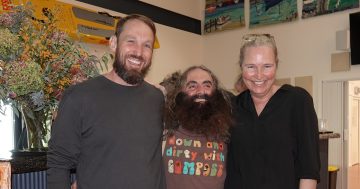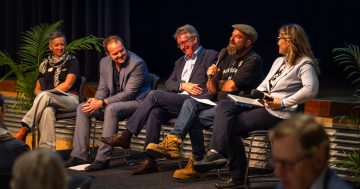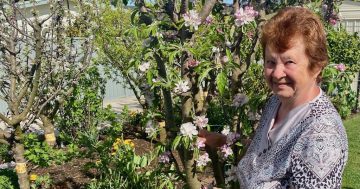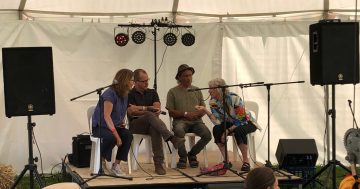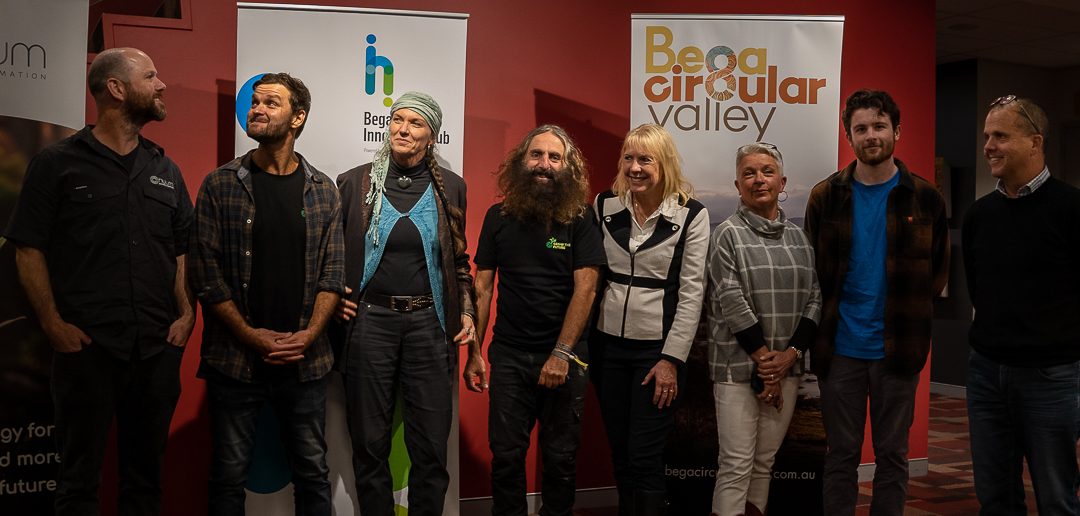
Costa attended several circularity events while in the Bega Valley this month. Photo: Zach Hooker Photography.
By thinking about what we bring into our homes we can reduce waste, keep money in the local economy and hold big organisations to account for doing the wrong thing. This idea of circularity is one of the messages Costa Georgiadis passionately spread on his Far South Coast trip this month. The tour was convened by permaculture specialist Dan Bakker of Eat Dirt Permaculture.
Environmental educator and popular host of ABC’s Gardening Australia, Costa said we had huge power as consumers. We control what we bring into our homes, what waste councils take away and have the power to keep money in the local economy rather than sending it to Sydney or overseas. Money circulating locally supports local producers, service providers and businesses. Thriving local businesses create pathways and jobs for the community’s youth.
Costa said that too often, people were conned into “corporate convenience” instead of thinking about whether or not a product was made with integrity. Will it last? Can it be repaired, or will it have to be discarded? Unless people think carefully about their purchasing decisions, they are part of the problem because they are supporting organisations that have lost their social licence to use our collective resources.
Single-use plastics are one example. “We should be asking enterprises and organisations what they are doing to reduce single-use plastic and telling them if they are producing it then they are responsible for disposing of it,” Costa said. He said people, businesses and compliance structures had become lazy in accepting plastic packaging of food because it was hygienic. “We just can’t keep going down that road.
“Why are things so heavily packaged? It is because of the supply chains and produce having to travel,” Costa said. “You don’t see plastic at the SAGE Market in Moruya so there is a real opportunity to hold these conversations and get community input into how, as a population, we can turn this around with responsibility, obligation and duty.”
Everyone can make a difference every day by not putting any food or greens into landfill bins. “That behavioural change of having a bench-top caddy and taking that to your garden or a community garden shifts your consciousness,” he said.
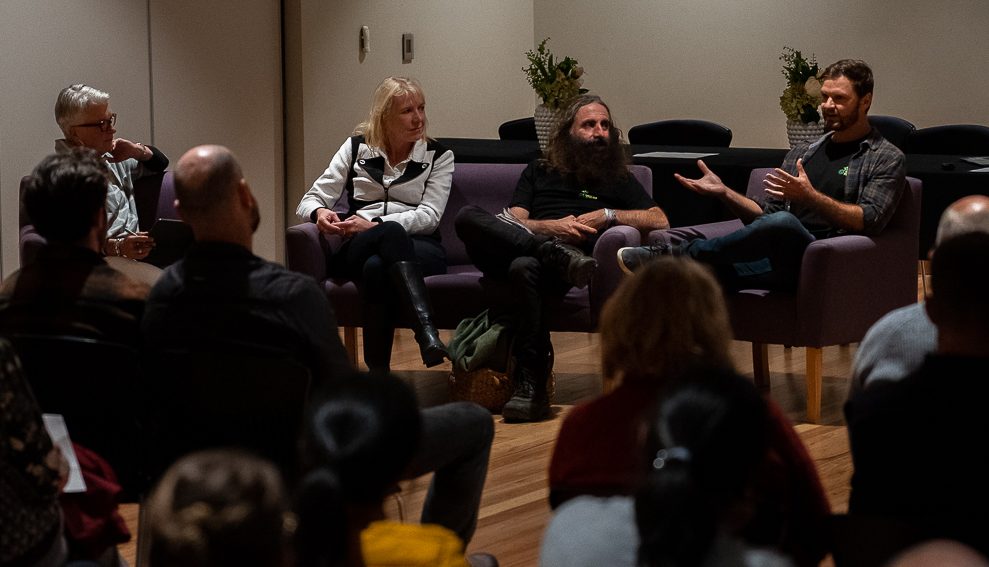
University of Wollongong’s Professor Karen Charlton and Grow the Future farm manager Callum Champagne joined Costa in a panel discussion on circularity. Photo: Zach Hooker Photography.
“Packaging is a rip-off,” Costa said. It is leading people to buy things more regularly and in smaller quantities rather than buying in bulk and sharing with neighbours and bulk-buy groups.
“All of this circularity brings up the idea that everything has seasons,” Costa said. “When a lemon tree is in full production squeeze the juice into ice cubes, freeze berries when they are plentiful, use cabbage to make sauerkraut. “That is your tummy medicine every day so you don’t need to see a doctor,” he said.
Surplus zucchinis can be grilled, put in olive oil with herbs and “suddenly you have cafe-style toast”. Europeans use surplus tomatoes in season to make passata. Using seasonal produce in those different ways brings nutrients and minerals and the financial savings are “massive”.
“Nature has crises every season so I have to have a crisis and spend Saturday making tomato sauce so we don’t have to make it again for the next six to nine months,” Costa said. “Turn crises into what they really are – abundances.”
As part of his tour, Costa visited the farm of Grow the Future, a social enterprise in Bega. He said the farm’s manager, Callum Champagne was drawing people into farming and gardening and giving youth the skills to grow food. “The food system has become so industrially dominant and leaves people with no choice, but when you grow things yourself and buy locally, you know where it is from and you are supporting a local healthy food source.
“There are so many ways to tell this story,” he said.








